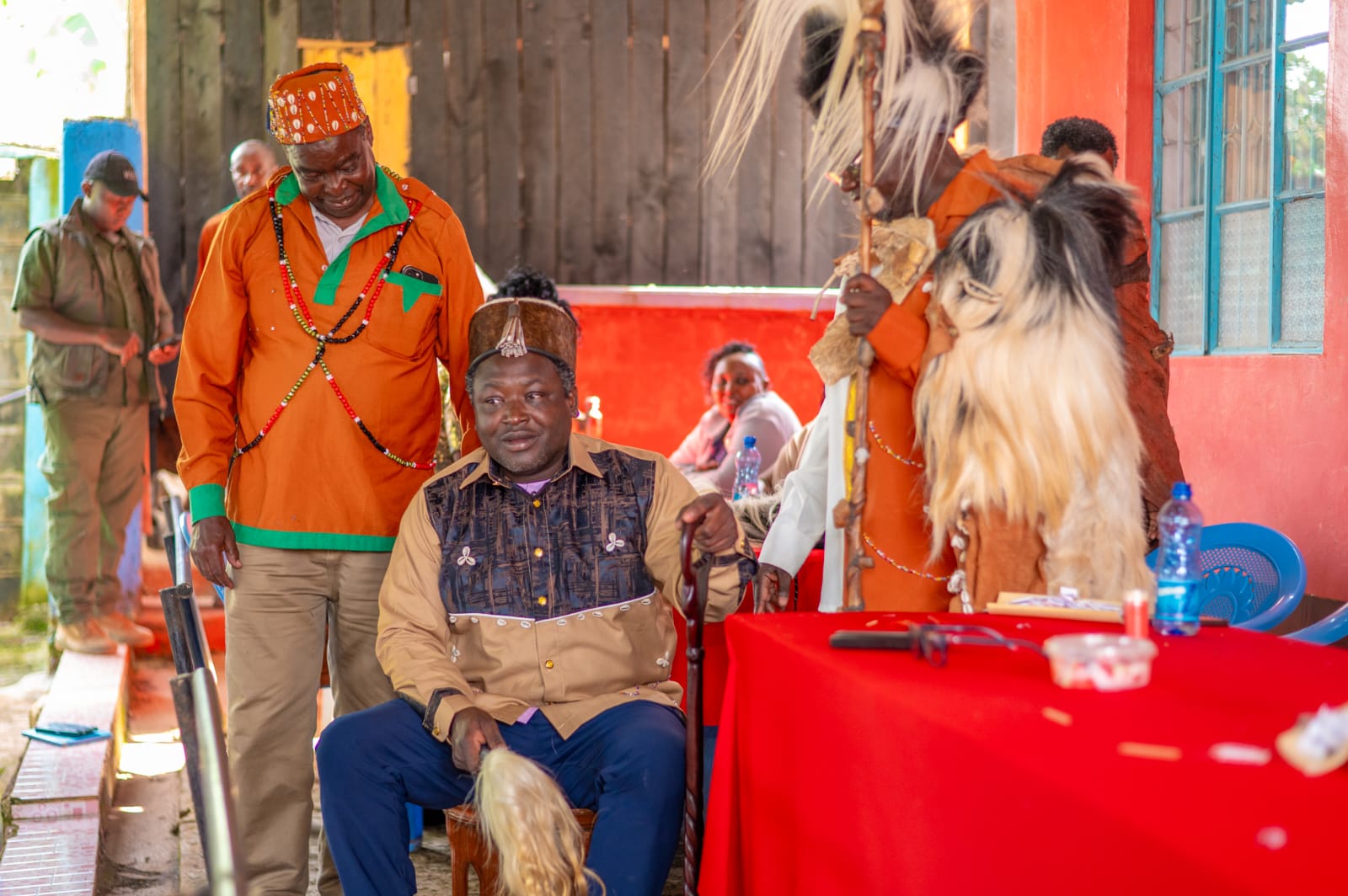

In a colorful and deeply symbolic
ceremony held in Nyeri County, Dr. Kennedy Odede, the Founder and CEO of
Shining Hope for Communities (SHOFCO), was officially installed as a Kikuyu
elder.
The coronation, conducted by senior
members of the Kiama Kia Ma led by National Vice Chair Dr. Njoroge Wa
Mugo and Nyeri County Patron Njaramba Wanjii, marked a significant gesture of
recognition for Odede’s contributions to community development and national
unity.
Dr. Odede, a respected grassroots
leader and social entrepreneur, was adorned in traditional regalia and
presented with symbols of elderhood, including a ceremonial walking stick,
traditional shirt, fly whisk, and traditional hat, signifying his new status
within the Kikuyu cultural hierarchy.
“This is
more than an honour. It is a call to responsibility. I stand here today not
just as a Kikuyu elder, but as a servant of all Kenyan communities. The wisdom
of our elders must be a foundation for peace, not division,” Dr. Odede said in
his acceptance speech Monday.
Odede, who has led SHOFCO’s
transformation from a small grassroots initiative in Kibera to a nationwide
movement impacting millions, emphasised the importance of traditional
leadership in guiding modern society.
“Our
elders hold the moral compass of our communities. In a time of political
uncertainty, we must protect their dignity and ensure their voices are used to
unite, not to divide,” he stated.
The elders praised Dr. Odede for his
dedication to the poor, particularly his work in informal settlements and
marginalised rural communities.
“We see in
Kennedy Odede the spirit of true leadership — one who uplifts others without
seeking personal glory.
“By
crowning him, we recognise not only what he has done, but what he still can do
for our community and the nation at large,” Njaramba said.
On his
part, Dr. Mugo said the SHOFCO founder has dedicated his life to serving underprivileged
communities irrespective of their tribal or political alliances.
“In our
tradition, an elder is not made because of age, but because of wisdom and
service.
“Dr. Odede
has walked the path of the people, and now the people have walked with him. We
are here as elders to affirm that we are supporting his work,” Dr. Mugo said.
The coronation comes as Odede
continues to champion national dialogues on inclusive development and youth
empowerment.
SHOFCO, under his leadership, has
partnered with several county governments, including Meru, Vihiga, and Kilifi,
to deliver essential services in health, education, and women empowerment.
The installation as a Kikuyu elder
is expected to deepen Dr. Odede’s connection with grassroots cultural
institutions as he builds coalitions to drive local-led development.
“Let this
be the beginning of greater unity.
We must honour the past, serve the
present, and shape a future where all communities walk together,” Dr. Odede
stated.
The ceremony also marked the
beginning of a broader initiative by Dr. Odede to unite elders across Kenya to
foster community development.
He emphasised the importance of
elders in guiding communities and urged them to be cautious of political
exploitation.
"Politicians must not misuse
our elders. These are upright leaders that we depend on to guide the community.
They provide stability in times of uncertainty," Odede remarked.
Dr. Odede also met Meru’s Njuri
Njeke Elders, led by their Secretary General Josphat Murangiri, who hailed him
for taking development to not only Meru County but every part of Kenya.
“We urge SHOFCO and the county
leadership to work hand-in-hand with traditional structures like the Njuri Njeke.
We can help guide implementation and ensure that no village is left behind,”
Murangiri said.
Dr. Odede hinted that he is working
toward hosting a National Elders’ Convention, where representatives from all
major ethnic councils of elders will deliberate on national
unity, peace, and development priorities at the community level.
“What we need is an Elders' Roundtable that speaks above politics and tribe. Elders can help guide the youth, protect cultural values, and promote dialogue during times of crisis. We must treat them not as relics of the past but as guides to the future,” he added.












